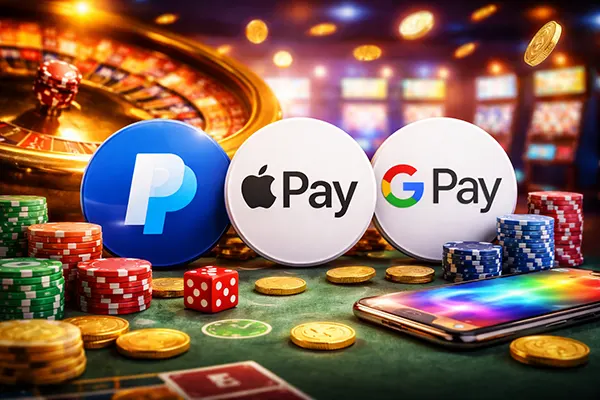
Poker in Cryptocurrency: Best Sites to Play in 2025
As cryptocurrency continues to reshape the global financial ecosystem, it is increasingly influencing the world of online poker. Players now have access to platforms that support Bitcoin (BTC), Ethereum (ETH), Tether (USDT), and other cryptocurrencies, offering a fast, secure, and borderless way to fund their gaming experience. In this article, we explore the top crypto poker sites for 2025, the advantages and risks of playing with digital currencies, and what players need to know before sitting down at the tables.
Top Crypto Poker Sites to Watch in 2025
The online poker landscape in 2025 features several platforms that fully embrace cryptocurrency. Among the leading names are CoinPoker, SwC Poker, and BetOnline. CoinPoker, built on blockchain technology, offers transparent gameplay, fast withdrawals, and its native token CHP for in-game use. SwC Poker (formerly Seals with Clubs) is a long-standing Bitcoin-only poker site with a reputation for fast payouts and anonymous play. BetOnline, though a hybrid platform, allows players to deposit and withdraw using a wide range of cryptocurrencies, including BTC, ETH, and LTC.
These sites cater to various skill levels and offer popular formats like Texas Hold’em, Omaha, and Sit & Go tournaments. Their main appeal lies in instant transactions, low fees, and minimal KYC requirements, providing more privacy compared to traditional poker platforms. Moreover, the global reach of crypto allows players from regions with restricted access to conventional poker rooms to participate without barriers.
Newer platforms like BC.Game and PokerFi are also making waves. BC.Game integrates social gaming with a poker ecosystem, while PokerFi leverages decentralised finance (DeFi) features to offer revenue sharing to its community. These innovative approaches attract a new wave of crypto-savvy players looking for decentralised and transparent gambling options.
What Sets These Sites Apart?
Most crypto poker sites distinguish themselves through lightning-fast deposits and withdrawals. Unlike fiat-based platforms, where bank transactions can take days, blockchain technology ensures near-instant settlements. This is especially beneficial for players who frequently move funds or play high-volume sessions. Moreover, lower transaction fees save money over time, especially with BTC Lightning or ERC-20 token transactions.
Privacy and anonymity are another major advantage. While traditional poker rooms often require extensive identity verification, many crypto sites allow play with only a wallet address. This is particularly appealing to players who prioritise online privacy or reside in jurisdictions with strict gaming laws.
Additionally, some platforms reward loyal users with rakeback, loyalty tokens, or in-game benefits tied to blockchain engagement. For example, CoinPoker offers rake rebates in CHP, while BC.Game gamifies its rewards system using crypto lotteries and spin wheels, further engaging the user base.
Benefits and Risks of Using Cryptocurrency in Poker
One of the primary benefits of using crypto for poker is transaction speed. Deposits and withdrawals are processed much faster than with banks or e-wallets. For frequent players, this means less downtime waiting for funds and more time at the tables. Cryptocurrencies also offer global accessibility, bypassing traditional banking restrictions that can hinder players in certain countries.
Moreover, crypto transactions can be cheaper. While traditional payment providers often charge processing fees, crypto networks, especially with scaling solutions like Bitcoin Lightning or Layer 2 Ethereum, offer reduced transaction costs. In some cases, platforms even cover gas fees to encourage deposits in specific currencies.
However, volatility remains a concern. The value of cryptocurrencies can swing dramatically within hours. A winning session today could lose value tomorrow due to market drops. Additionally, scams and unregulated platforms still pose a risk. Without proper research, players could deposit on sites that lack transparency or have no verifiable license.
Mitigating Potential Downsides
To reduce volatility risks, some platforms offer stablecoin support (like USDT or USDC), ensuring that bankrolls remain relatively unaffected by market swings. These pegged assets offer the same benefits as traditional crypto—speed, low fees, and decentralisation—without the price fluctuation.
Players should also evaluate the reputation and transparency of a site. TrustPilot reviews, Reddit discussions, and poker forums are valuable sources for learning about a platform’s reliability. Avoiding offshore sites without a clear regulatory framework is also advised, especially for high-stakes games.
Lastly, using secure wallets and enabling two-factor authentication (2FA) adds an extra layer of protection. Some players even use cold wallets to store winnings safely offline, ensuring their funds aren’t vulnerable to hacks on centralised platforms.

Legal Considerations and Regulation in 2025
Regulation of crypto gambling platforms continues to evolve. In 2025, jurisdictions like Malta and Curaçao have expanded their frameworks to include crypto-specific licensing. This means more sites now operate under clearer guidelines, offering greater security for players. Players should always check whether a site is licensed by a recognised authority before depositing funds.
In the United States, the legal landscape remains fragmented. Some states permit online poker but ban crypto transactions, while others embrace both. Players must understand their local laws to avoid breaching regulations or losing access to winnings due to jurisdictional blocks. VPNs can help access global platforms, but their use may violate terms of service and risk account suspension.
The European Union has introduced MiCA (Markets in Crypto-Assets Regulation), which aims to unify crypto rules across member states. For players, this translates to more consistent protections and better transparency. Sites complying with MiCA standards are generally safer choices, as they must meet strict KYC and anti-money laundering requirements.
Staying Informed and Safe
Knowledge is a player’s best defence. Staying updated with crypto and gambling laws in your country is essential. Many poker communities and legal trackers offer real-time updates, especially in jurisdictions with active legislation like the UK, Germany, and the US.
It’s also recommended to choose platforms that publicly display their licensing information, blockchain audit results, and hold verifiable partnerships with reputable blockchain providers. These factors demonstrate the platform’s commitment to transparency and trustworthiness.
In 2025, many of the best crypto poker platforms have implemented provably fair algorithms, which allow players to verify each hand’s integrity using cryptographic methods. This ensures a fair playing environment and builds long-term trust in the brand.





